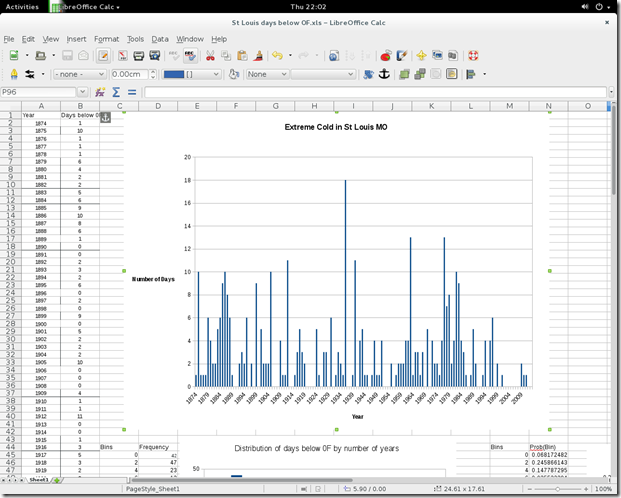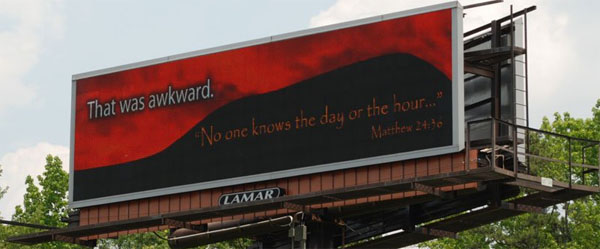[I originally sent this to WUWT but Anthony just copied a half of one of Steyn’s posts and posted that instead. So I’m reposting it here]
I noticed a couple of updates on Mark Steyn’s blog regarding the suit brought against him by Michael Mann, WUWT’s favorite climate scientist, which I felt should be brought to a wider audience.
First off, no scientific organization has filed amici briefs supporting Mann’s suit against the National Inquirer, the CEI or Mark Steyn:
A few weeks ago, you’ll recall, the ACLU, The Washington Post, NBC News, The Los Angeles Times and various other notorious right-wing deniers all filed amici briefs opposed to Michael Mann and his assault on free speech. They did this not because they have any great love for me, but because their antipathy to wackjob foreign blowhards is outweighed by their appreciation of the First Amendment – and an understanding of the damage a Mann victory would inflict on it. After noting the upsurge of opposition to Mann, Reuters enquired of Catherine Reilly (one of his vast legal team) whether there would be any amici filing pro-Mann briefs:
I asked Reilly if the professor would have any supporting briefs next month when he responds to the defendants in the D.C. appeals court.
“At this point, we don’t know,” she said.
Ms Reilly was a pleasant sort when I met her in court over a year ago, but she struck me as a formidable opponent. So I naturally assumed that the above was what what the political types call “lowering expectations”. As I wrote:
“I would be surprised if Mann didn’t have any supporting briefs. I was in court when Ms Reilly’s genial co-counsel made his argument for Mann, which was a straightforward appeal to authority: Why, all these eminent acronymic bodies, from the EPA and NSF and NOAA even unto HMG in London, have proved that all criticisms of Mann are false and without merit. So I would certainly expect them to file briefs – and, given that Mann sees this as part of a broader “war on science” by well-funded “deniers”, I would also expect briefs from the various professional bodies: the National Academy of Sciences, the American Physical Society, etc. As pleasant as it is to find my side of the court suddenly so crowded, I’m confident Mann will be able to even up the numbers.”
Well, yesterday was the deadline, and not a single amicus brief was filed on behalf of Mann. Not one. So Michael Mann is taking a stand for science. But evidently science is disinclined to take a stand for Michael Mann.
Now that IS surprising, because I would have thought that someone, some interested organization would be supporting Mann. I could think of the IPCC or Al Gore or Penn State University or the University of Virginia or the University of East Anglia’s Climate Science Unit or the AAAS or the WMO or some body or other.
The self-appointed captain of the hockey team is playing solo. As Judith Curry wrote last month:
“The link between ‘defending Michael Mann is defending climate science’ seems to have been broken.”
As yesterday’s deafening silence confirms. If you’re defending Michael Mann, you’re not defending science, or defending climate science, or theories on global warming or anything else. Defending Michael Mann means defending Michael Mann – and it turns out not many people are willing to go there.
Truly the silence is deafening. It’s not a good sign that no organization associated with the research into the perils for future global warming felt any need to support Mann in his Valiant Defense of Science by filing a brief.
Oh brother climate scientists, where art thou?
The second update I noticed was Mann’s repudiation of his own smoothed (and artfully pruned) hockey stick.
Here’s the graphic:

And here’s what Mann has told the court (with emphasis by Steyn):
In their brief, the CEI Defendants suggest that the University of East Anglia’s investigation actually found that the hockey stick graph was “misleading” because it did not identify that certain data was “truncated” and that other proxy and instrumental temperature data had been spliced together… This allegation is yet another example of Defendants’ attempts to obfuscate the evidence in this case. The “misleading” comment made in this report had absolutely nothing to do with Dr. Mann, or with any graph prepared by him. Rather, the report’s comment was directed at an overly simplified and artistic depiction of the hockey stick that was reproduced on the frontispiece of the World Meteorological Organization’s Statement on the Status of the Global Climate in 1999.41 Dr. Mann did not create this depiction, and the attempt to suggest that this report suggested an effort by Dr. Mann to mislead is disingenuous.
Disingenuous: adjective “not candid or sincere, typically by pretending that one knows less about something than one really does.”
Except as Steyn points out, that particular depiction was claimed to have been created by Mann and other Hockey Team members because Mann claimed that he did on his online resume:

So who or what to believe? Mann’s own resume or Mann’s deposition to the Court?
It’s a brain-buster for sure.
I’m sure that Mann will be projecting himself to be a lone scientific David bravely fighting the evil Denialist Fossil-Fuel funded Goliath. But unless Mann is seriously packing heat in his slingshot, it looks to me somewhat dicey from this vantage point.
Someone is going to lose heavily in this Climate Loserweight Title Fight. I can’t see it going the distance.


 Just reading
Just reading 

 We’re on the edge of a new stock bubble. First we get good IPOs (LinkedIn and Facebook in the near future) with reasonable growth and profits, then the quality goes south as investors pile in to ever shittier prospects.
We’re on the edge of a new stock bubble. First we get good IPOs (LinkedIn and Facebook in the near future) with reasonable growth and profits, then the quality goes south as investors pile in to ever shittier prospects. In a slight departure from my normal blogging, I thought I’d tackle a subject close to my heart – the iPad. Or more accurately, in my opinion the iPad is not the dominant computing paradigm of the future, it’s a diversion to Nowheresville.
In a slight departure from my normal blogging, I thought I’d tackle a subject close to my heart – the iPad. Or more accurately, in my opinion the iPad is not the dominant computing paradigm of the future, it’s a diversion to Nowheresville.




What Christopher Monckton has written is pure sophistry and I can only describe it as deceptive.
In the European election of 2014, UKIP made no mention of climate change or climate skepticism, so why is Christopher Monckton allowed to make such a claim? The only reference I can find in the 2014 local and European manifestos is a commitment to local, binding referenda on things like wind turbines and solar power and to building coal and nuclear power plants to reduce the cost of energy.
The leader of UKIP, Nigel Farage, described the 2010 manifesto as “drivel”, so why is Monckton trumpeting the commitments made then as somehow relevant to the reasons why people voted UKIP in 2014 or even to the UKIP itself?
It seems to me that people voted UKIP largely as a protest vote against further EU integration (which is a common theme across the EU) and against continuing mass immigration (ditto).
I know that WUWT gives quite a bit of latitude to posters in the name of free speech, but this is a political tract for a policy position that even a right-wing party like UKIP does not promulgate any more.